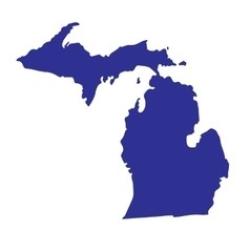Michigan

Staffing
Staff morale continues to be an issue. Staff voiced objections when the Saturday service was first announced, with the timing of hiring staff lending to various responsibilities for staff with regarding to being required to work weekend hours. In response, the NBS lab formed workgroups of managers, scientists, and technicians to provide a forum to share concerns and also engaged with union representatives. To reduce the burden on regular lab staff, the laboratory hired college students to work part-time on Saturdays but their varying personal schedules did not make this a sustainable solution.
After a voluntary sign-up program failed, the new laboratory director distributed Saturdays equally among staff based on seniority. Staff who work Saturday can choose an alternate day off in the next week. This approach has helped morale, but scheduling is difficult because managers must find staff with the right mix of skills to coverage every day of the week. The laboratory is beginning to cross-train all staff but in the meantime, untrained staff cannot volunteer to work on Saturdays. It has been difficult for the Michigan lab to maintain crosstraining as all personnel must complete a biannual competency test and an annual competency certification for each testing area.
Courier
In 2008, the Michigan Department of Health and Human Services Bureau of Laboratories switched from the US Postal Service to a privately operated courier system – a driving courier for the Lower Peninsula and a UPS overnight courier for the Upper Peninsula –to remedy problems with delayed delivery of specimens resulting from cuts to the US Postal Service budget. With newborn screening and infectious disease specimens now delivered on Saturdays, the lab also became fully operational on that day to allow for processing of specimens.
The Laboratory Bureau’s selection of a contractor dedicated solely to development and maintenance of the courier system has proven to be a major factor in its success. The contractor coordinates routes and educates drivers about the importance of timely pickup and delivery of specimens. A training video explains that even an hour’s difference in delivery can be crucial in identifying potential abnormalities. The newborn screening follow-up team also works with birthing facilities to determine a location for specimen pickup when a shipping department is closed.